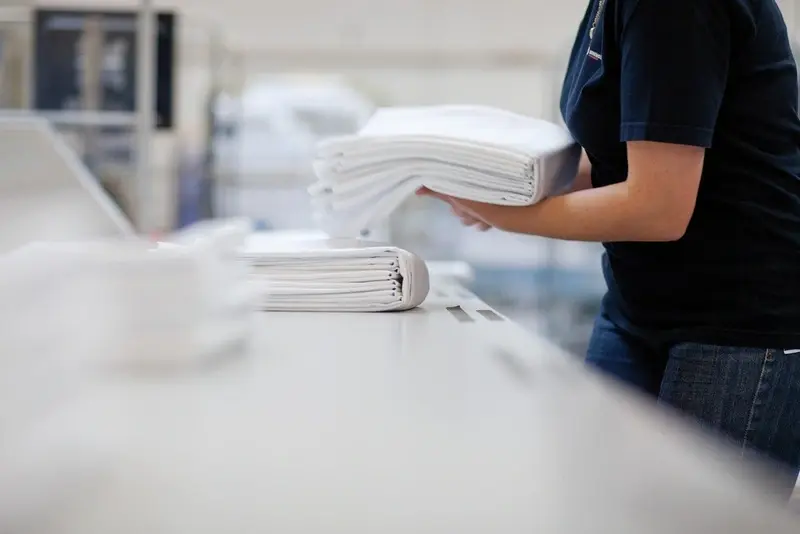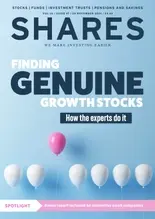
Textile rental specialist Berendsen (BRSN) has beaten market forecasts with an excellent set of half-year results, pushing up the shares 5.5p to 875.5p. The key to its profit growth is pushing up operating margins and that's certainly been achieved this time with a fantastic 80 basis point improvement to 13.8%.
Regular Shares readers should be familiar with Berendsen as we've regularly flagged up its attractions over the years. It is one of those stocks where investors often look at the valuation and immediately dismiss the company, saying it looks too expensive given it simply cleans supermarket uniforms and provides floor mats for offices. Forecasts for 2013 put the stock on a price to earnings (PE) ratio of 15.6.
Many City forecasters have long considered the stock's rating on the lofty side, so there's quite a lot of fence sitting with 'hold' ratings. We disagree, seeing plenty of reasons to maintain our 'buy' stance. We also note a positive tone on the stock in several of today's research notes with a number of analysts saying the 'risk' is to the upside - namely that there's a good chance earnings will have to be upgraded if the company continues its performance trend. And that's on the back of several analysts having already nudged up their numbers following a trading update last month.
Berendsen continues to produce solid results and that is reflected in strong share price appreciation. The FTSE 250 constituent has risen 84% in value since we looked at the company in depth in a 'griller' article last year (see Shares, 17 May 2012). saying to buy at 477.1p.
The company's strategy is to drive margins and allocate capital to the growth areas of its business. That is certainly paying off, as illustrated by today's results that include 112% of adjusted pre-tax profit converted into cash. A figure above 100% can be read as someone that isn't reinvesting to grow its business. This isn't the case for Berendsen as it continues to invest, saying 112% is actually quite low compared to historical rates - indeed at the end of the last financial year cash conversion stood at 142%, says chief executive officer Peter Ventress.
Oriel Securities reckons margin progress will slow in the second half of the year. This would not be a result of capital investment, says Ventress, but rather investments to boost procurement, sales and marketing capabilities and a name change in the UK to Berendsen from Sunlight. The latter has been influenced by Sunlight's management, not by head office. 'It won't make much difference to customers, it is being done as a catalyst for cultural change,' says the CEO.
A bigger push is being given to sales as Ventress admits: 'Our business is sold not bought. People don't wake up and suddenly decide they want to outsource certain tasks.' A key focus for Berendsen is to target companies that haven't outsourced textile needs, labelled 'virgin' accounts. RBC Capital Markets comments: 'With 40% of the textiles market still not outsourced, this represents a big opportunity.'
Berendsen is taking best practice from its European operations to install a new business model at its UK operations. One plant (Merseyside) has already been converted, the second (Wakefield) goes live in the third quarter whereby workwear is handled in small batches per client by a self-managed team. Historically, all the items for multiple customers have been cleaned in a big machine and then sorted afterwards. Ventress reports efficiency improvements of between 45% to 50% because of the operating model change.
The group has nearly 250,000 contracts, mostly with small businesses but also some big customers. This year it was won new deals with Airbus in the UK, London Underground and Pret a Manger.
International expansion is being tested through a move into Russia. A client is building a plant which will be run by Berendsen. New plants typically cost between £5 million and £10 million, says Ventress.
The 80 basis point margin improvement reported at the interims is particularly good, albeit somewhat out of the ordinary. The CEO reckons 10 to 20 basis point improvement per year is a more normal performance.
Shareholders are being rewarded with a 10% rise in the interim dividend. Statutory pre-tax profit rises 23% to £46.7 million. Free cash flow is up 13% to £50.3 million.
Oriel has a 960p price target. JP Morgan is more bullish with a £10.23 target.





